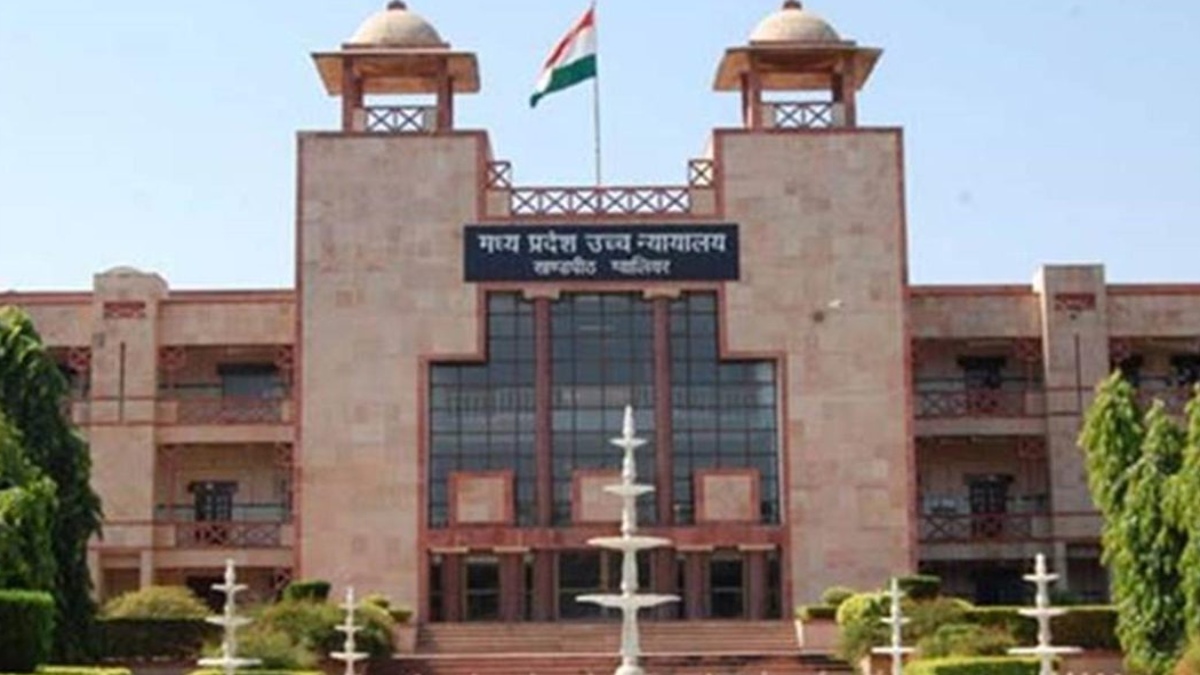
In a well-articulated, well-researched, well-analysed, well-reasoned, well-written, well-substantiated and well-concluded judgment titled In Reference (Suo Motu) vs Yogesh Nath @ Jogesh Nath in Criminal Reference Case No. 05/2020 & Criminal Appeal No. 4965/2020 that was reserved on 26 August, 2021 and then finally pronounced on September 8, 2021, the Gwalior Bench of Madhya Pradesh High Court made it absolutely clear that sentencing on the same day as conviction denies an effective hearing. This alone explains why the Gwalior Bench had just no inhibition in referring specifically to the most historic Bachan Singh’s case (Bachan Singh vs State of Punjab AIR 1980 SC 898) to observe clearly that the accused was denied an effective hearing. It must be mentioned here that a Division Bench of Justices GS Ahluwalia and Rajeev Kumar Srivastava made it a point to note that no sufficient opportunity was given to the accused-appellant for placing mitigating circumstances on record. It was further also pointed out that the trial court did not consider the grant of any alternative punishment or the possibility of reformation.
To start with, this brief, brilliant, bold and balanced judgment authored by Justice Rajeev Kumar Shrivastava for himself and Justice GS Ahluwalia of Gwalior Bench of Madhya Pradesh High Court sets the ball rolling by first and foremost observing in para 1 that, “This judgment shall govern the disposal of Criminal Reference Case No. 05/2020 as well as Criminal Appeal No. 4965/2020, as both arise out of judgment dated 16.09.2020 passed by Fifth Additional Sessions Judge & Special Judge (Protection of Children from Sexual Offences Act, 2012), Gwalior (MP) in Special Sessions Trial No. 122/2017.”
To put things in perspective, the Bench then puts forth in para 2 that, “As per Criminal Reference Case No.05/2020, Fifth Additional Sessions Judge & Special Judge (Protection of Children from Sexual Offences Act, 2012), Gwalior (MP) vide judgment dated 16.09.2020 in Special Sessions Trial No. 122/2017, having found the accused guilty under Sections 363, 377, 302, 201 (Part-1) of IPC and under Section 3/4 of Protection of Children from Sexual Offences Act, 2012 (hereinafter referred to as the ‘POCSO Act’), has inflicted penalty of death sentence and has submitted the matter for confirmation under Section 366 of Cr.P.C.”
While elaborating on the facts of the case, the Bench then enunciates in para 4 that, “The short facts of the case are that on 28.04.2017, Ashok Adiwasi along with his family members, his wife Jasoda, daughters Pooja, Arti and sons Daulat & deceased ‘A’, attended the marriage ceremony of Varsha, who is the daughter of Dharmendra. Deceased ‘A’ was aged around 10 years. After attending the marriage function Ashok Aadiwasi returned back home with his family members excluding deceased ‘A’. As deceased ‘A’ was missing, hence Ashok Aadiwasi tried to search the deceased ‘A’ but his efforts left in vain. On the next day morning, he was informed that dead body of deceased ‘A’ is found in the dug of village Bara and the body of deceased ‘A’ is nude. This information was furnished to the Police Station Bahodapur. On account of that, Hemlata, Sub-Inspector of Police Station Bahodapur reached on the spot and recorded Dehati Nalishi. On the basis of Dehati Nalishi, thereafter FIR was set into motion at Crime No. 260/2017 and offence was registered under Sections 377, 302, 201 of IPC and under Section 3/4 of POCSO Act, on 29.04.2017, i.e., Ex.P/15.”
Needless to say, the Bench then states in para 7 that, “After completion of investigation, charge sheet was filed. The trial Court framed the charges under Sections 377, 302, 201 (Part-I), 363 of IPC and under Section 4 read with Section 3 of POCSO Act. The accused abjured his guilt and sought trial.”
Be it noted, the Division Bench then observes in para 109 that, “On perusal of trial Court’s judgment, it is apparent that the trial Court while passing the judgment on 16/09/2020, convicted the accused-appellant for offences as mentioned above. Thereafter, on the same day after hearing the counsel for the parties, awarded the accused appellant death punishment along with other punishments.”
Quite significantly, the Bench then observes in para 113 that, “On perusal of record, it is apparent that no sufficient opportunity was given to the accused-appellant for placing relevant mitigating circumstances supported with affidavit on record. The appellant-accused is aged around 25 years of age. The trial Court has not considered regarding alternative punishment to the appellant-accused and there is no any finding that in the absence of death sentence, the appellant accused would continue to be a threat to the Society. And also not answered that there is no possibility of reformation.”
Most significantly, what forms the cornerstone of this notable judgment is then elaborated upon in para 114 wherein it is postulated that, “For effective hearing under Section 235(2) of the Code of Criminal Procedure, the suggestion that the court intends to impose death penalty should specifically be made to the accused, to enable the accused to make an effective representation against death sentence, by placing mitigating circumstances before the Court. This has not been done. The trial court made no attempt to elicit relevant facts, nor did the trial court give any opportunity to the petitioner to file an affidavit placing on record mitigating factors. As such the accused has been denied an effective hearing.”
As a corollary, the Bench then finds no hesitation in observing in para 115 that, “Therefore, considering the aforesaid mitigating circumstances in the present case, we are of the considered view that in the case at hand verdict given by Hon’ble Apex Court in the case of Mulla & Anr. Vs. State of U.P. [AIR 2010 SC 942] followed for just decision of this case.”
As we see, the Bench then observes in para 116 that, “In the case of Mulla (supra), it is held that it is open to the Court to prescribe the length of incarceration. This is especially true in cases where death sentence has been replaced by the life imprisonment.
“85. … The court should be free to determine the length of imprisonment which will suffice the offence committed.” (emphasis supplied).”
It is worth noting that the Bench then observes in para 117 that, “Even though life imprisonment means imprisonment for entire life, convicts are often granted reprieve and/or remission of sentence after imprisonment of not less than 14 years. In this case, considering the heinous, revolting, abhorrent and despicable nature of the crime committed by the appellant, we feel that the appellant should undergo imprisonment for life, till his natural death and no remission of sentence be granted to him.”
In view of the aforesaid, the Division Bench then in para 118 comes to the rational conclusion that, “For the above reasons, we are of the view that the present appeal is one of such cases where we would be justified in holding that confinement till natural life of the appellant-accused shall fulfill the requisite criteria of punishment considering the peculiar facts and circumstances of the present case.”
Truth be told, the Bench then ostensibly observes in para 119 that, “Accordingly, the death sentence awarded by the trial court to the appellant-accused is commuted to “life imprisonment” till his natural death. The appellant-accused shall not be entitled for any remission.”
As a kind gesture, the Bench then graciously concedes in para 120 that, “Before parting with this judgment, this Court would like to record its appreciation for the assistance rendered by Shri Vivek Jain and Shri S.S. Kushwaha, Advocates, who tried their level best to point out each and every minor discrepancy in the evidence of the prosecution in order to effectively put forward the case of the appellant-accused.”
Furthermore, the Bench then holds in para 121 that, “With aforesaid modification in sentence, the judgment dated 16/09/2020 passed by Fifth Additional Sessions Judge & Special Judge (POCSO Act), Gwalior in Special Sessions Trial No.122/2017 is hereby affirmed.”
Adding more to it, the Bench then holds in para 122 that, “The appellant-accused in Cr.A. No.4965/2020, namely, Yogesh Nath @ Jogesh Nath, is in jail. He shall undergo the remaining jail sentence till his natural death.”
In the fitness of things, the Bench then directed in para 123 that, “A copy of this Judgment be immediately sent to the accused-appellant in Cr.A. No.4965/2020, Yogesh Nath @ Jogesh Nath, free of cost.”
In conclusion, the Division Bench of Gwalior Bench of Madhya Pradesh High Court thus stands fully justified in this leading judgment in commuting the death sentence to life imprisonment and it has accorded valid reasons also for doing so as already discussed hereinabove and the most prominent being that sentencing on the same day as conviction certainly culminated in denying an effective hearing to the accused so that the accused could place the mitigating circumstances before the court. Moreover, there was no direct evidence in this case and there were various material contradictions and omissions in the statements of prosecution witnesses. In addition, no witness has proved last seen evidence. As if this was not enough, it also could not be glossed over that public hairs of the accused were collected by cutting them with the help of a razor and therefore the prosecution could not rely upon the DNA report of accused-appellant. To top it all, the DNA samples were also not collected properly for forensic test and sent after delay. So it was therefore quite palpable that death penalty had to be reduced to life term and the same was done accordingly!















